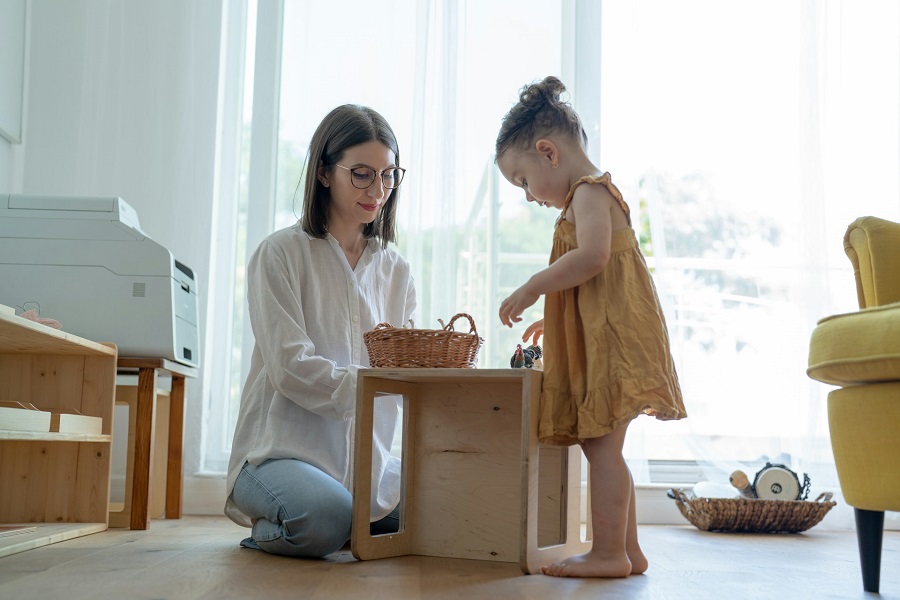Child Maintenance: When does it stop?

For separated or divorced parents, ensuring the financial well-being of their children is a paramount concern. In the UK, the legal obligation to provide child maintenance often arises, but uncertainties may linger around when this duty concludes. This comprehensive guide aims to clarify the intricate details surrounding the termination of child maintenance, empowering you with the knowledge to make informed decisions for your family’s future. Consulting a lawyer can provide valuable guidance throughout this process.

KEY TAKEAWAY: Understanding the legal obligation of child maintenance
In the UK, both parents bear a legal responsibility to financially support their children, even after separation or divorce. This obligation, known as child maintenance, aims to ensure that the child’s essential needs, such as housing, food, clothing, education, and healthcare, are arramet. The requirement to pay child maintenance is mandatory and governed by specific laws and regulations.
Read on to learn more about when child maintenance stops in the UK.
When does child maintenance start?
The commencement of child maintenance payments is typically triggered by one of the following events:
- One parent initiates the process by contacting the Child Maintenance Service (CMS), the government agency responsible for overseeing child maintenance arrangements.
- During divorce or separation proceedings, the court may issue an order for child maintenance payments.
- Both parents can voluntarily agree on a private arrangement, stipulating the terms and conditions of the child maintenance payments.
Regardless of the method chosen, the effective start date for child maintenance is officially established, ensuring a clear timeline for financial support.
Factors determining when child maintenance stops in the UK
The age and education status of the child play a pivotal role in determining when you stop paying child support. According to UK law, the obligation to pay child maintenance persists until:
- The child reaches the age of 16.
- The child turns 20 years old if they remain in full-time education up to A-level equivalent or below.
It’s important to note that the definition of “full-time education” for the purposes of child maintenance is specific: it must involve at least 12 hours of guided instruction or course-related work experience per week, up to the A-level equivalent level.
Exceptions to the general rules
While the age and education milestones mentioned above represent the general guidelines, there are certain exceptions where child maintenance may terminate earlier or extend beyond these limits. These include:
- Upon the adoption of the child.
- If both parents resume cohabiting.
- If the child relocates outside of the UK.
- If the child gets married, enters a civil partnership, or begins living independently before the age of 20.
- By court order, in cases of significant changes in circumstances, such as the death of a parent.
Do you need a lawyer in child maintenance matters?
While the laws surrounding child maintenance may seem straightforward, real-life situations often involve complexities that require legal expertise. Consulting a lawyer specializing in family law can prove invaluable in navigating the intricacies of child maintenance, particularly in the following areas:
- Drafting comprehensive agreements that address the child’s needs, including provisions for higher education funding.
- Advising on the appropriate steps to take when seeking a court order for extended maintenance or addressing disputes.
- Negotiating fair payment terms, amounts, and adjustments based on changing circumstances with the other parent.
- Representing your interests in court proceedings, if necessary, to ensure your rights and your child’s well-being are protected.
A lawyer’s guidance can provide peace of mind and ensure compliance with the legal framework, safeguarding your child’s future.
Qredible simplifies the process of finding a trusted family law expert in your area, without the need for registration.
Frequently Asked Questions on child maintenance
What is CSA? CSA stands for the Child Support Agency, which is a government agency responsible for overseeing child maintenance arrangements in the UK.
How does CSA differ from child maintenance? Child maintenance refers to the general obligation for separated or divorced parents to financially support their children. The CSA is the specific government service that can calculate, arrange, collect and enforce child maintenance payments if parents cannot agree on an amount privately.
When does CSA stop? The Child Support Agency (CSA) child maintenance obligations cease when the child turns 20 or completes approved full-time education up to A-levels, whichever occurs later.
In conclusion, understanding the legal parameters surrounding when child maintenance stops in the UK is crucial for separated or divorced parents. While general rules exist, individual circumstances may warrant exceptions or the need for legal guidance. Consulting a family law lawyer can provide invaluable support in navigating this complex landscape, ensuring your child’s financial well-being is prioritized while complying with the law.
KEY TAKEAWAYS:
- Child maintenance refers to the legal obligation for separated or divorced parents to financially support their children, ensuring their essential needs are met.
- The commencement of child maintenance payments can be triggered by contacting the Child Maintenance Service (CMS), court orders during divorce proceedings, or voluntary private arrangements between parents.
- In the UK, the obligation to provide child maintenance persists until the child turns 16 or 20 if they remain in full-time education up to A-level equivalent or below.
- Payments typically cease on the last day of August following the completion of A-levels or the child’s non-advanced full-time education program.
- Exceptions allowing earlier termination include the child getting married, relocating abroad, being adopted, or parents resuming cohabitation.
- Parents can voluntarily extend support for higher education through mutual agreements or court orders obtained before the child turns 18.
- Consulting a family law solicitor can offer invaluable guidance in drafting agreements, seeking court orders, negotiating terms, and representing interests when complexities arise.
Do you need a solicitor?
Find a solicitor on Qredible in just a few easy steps
















